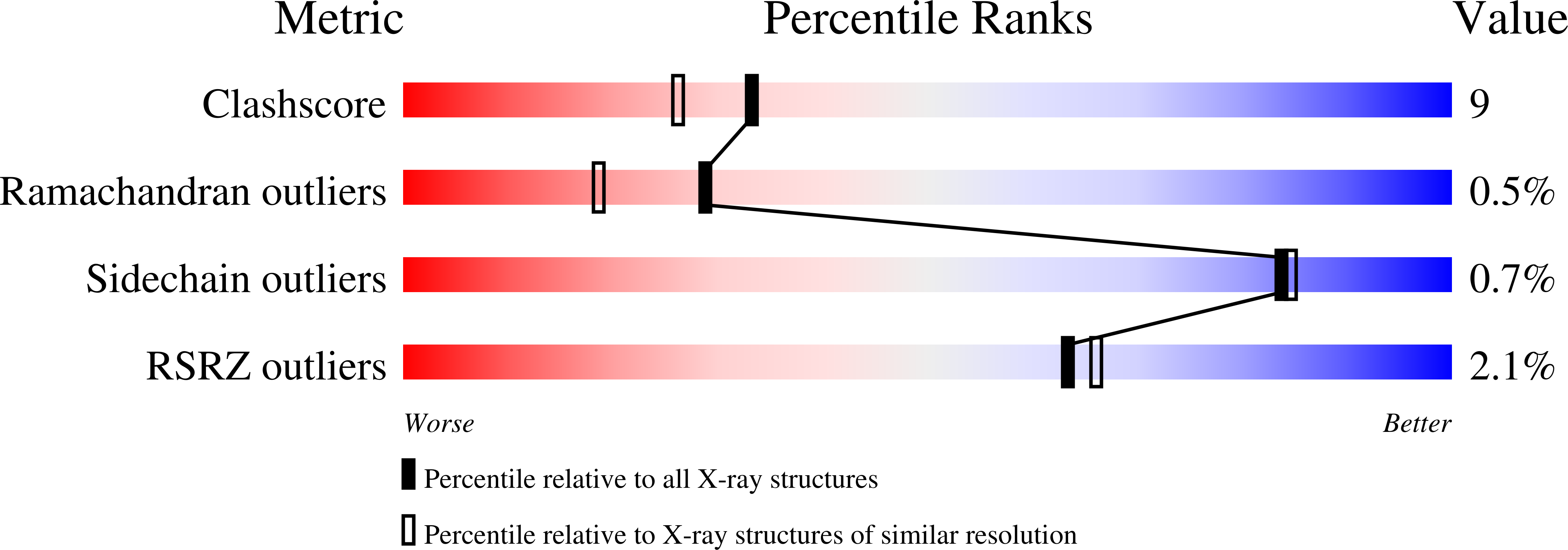Identification of substituted 2-thio-6-oxo-1,6-dihydropyrimidines as inhibitors of human lactate dehydrogenase.
Dragovich, P.S., Fauber, B.P., Corson, L.B., Ding, C.Z., Eigenbrot, C., Ge, H., Giannetti, A.M., Hunsaker, T., Labadie, S., Liu, Y., Malek, S., Pan, B., Peterson, D., Pitts, K., Purkey, H.E., Sideris, S., Ultsch, M., Vanderporten, E., Wei, B., Xu, Q., Yen, I., Yue, Q., Zhang, H., Zhang, X.(2013) Bioorg Med Chem Lett 23: 3186-3194
- PubMed: 23628333
- DOI: https://doi.org/10.1016/j.bmcl.2013.04.001
- Primary Citation of Related Structures:
4JNK - PubMed Abstract:
A novel 2-thio-6-oxo-1,6-dihydropyrimidine-containing inhibitor of human lactate dehydrogenase (LDH) was identified by high-throughput screening (IC50=8.1 μM). Biochemical, surface plasmon resonance, and saturation transfer difference NMR experiments indicated that the compound specifically associated with human LDHA in a manner that required simultaneous binding of the NADH co-factor. Structural variation of the screening hit resulted in significant improvements in LDHA biochemical inhibition activity (best IC50=0.48 μM). A crystal structure of an optimized compound bound to human LDHA was obtained and explained many of the observed structure-activity relationships.
Organizational Affiliation:
Genentech, Inc., 1 DNA Way, South San Francisco, CA 94080, USA. [email protected]



















